Download our Free Guide:
Senior Living Explained
Learn what different types of senior living care are available and which one best fits your needs now and in the future.

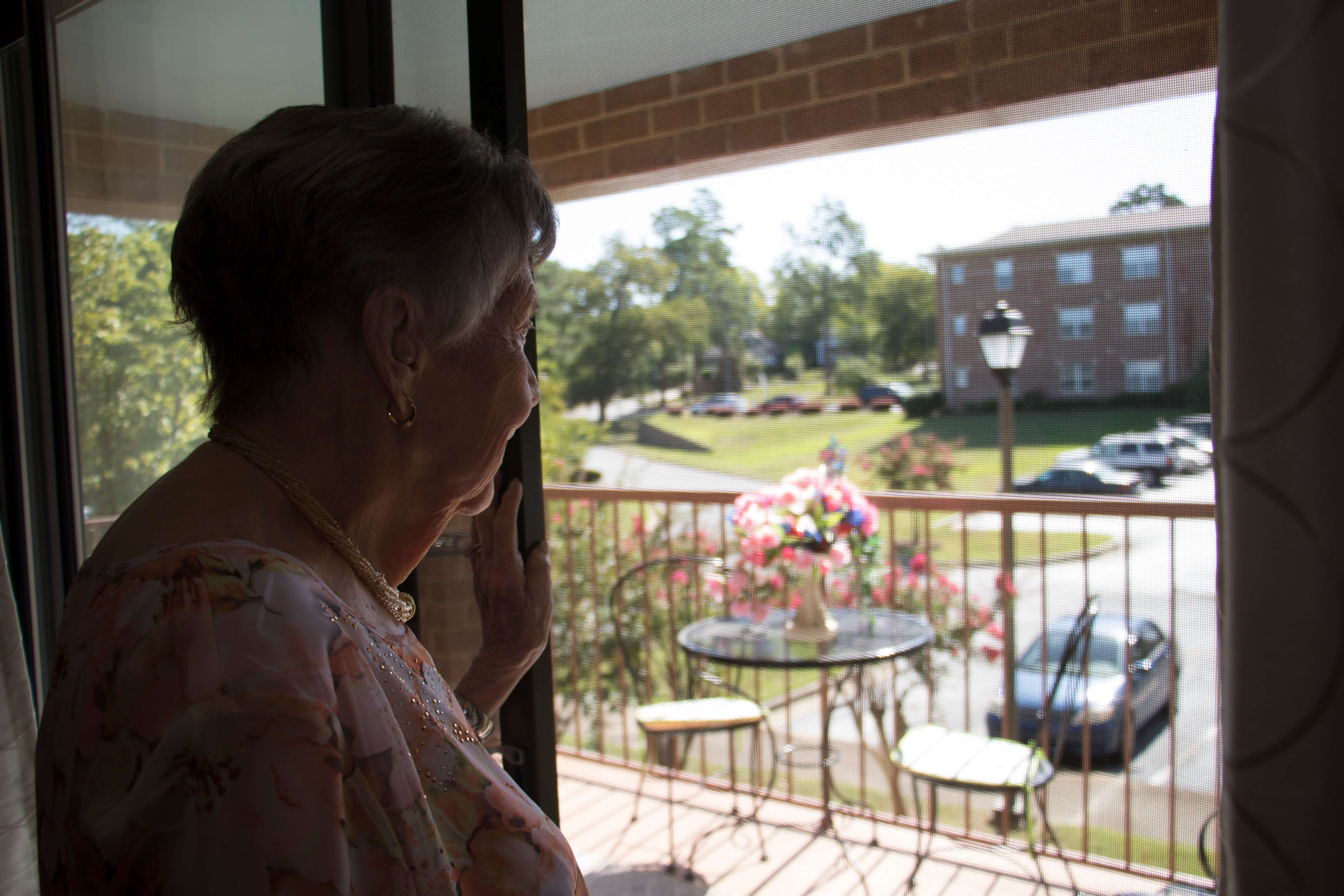
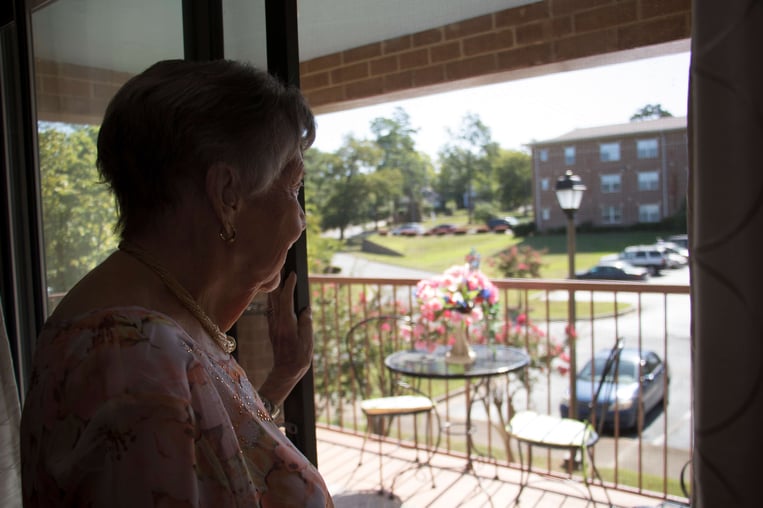
While many of us struggle to find some quiet time to ourselves amidst our busy lives, many seniors spend too much time on their own. According to researchers at the University of Michigan, “chronic loneliness can adversely affect mental, cognitive, and physical health, and general well-being, and even longevity.”
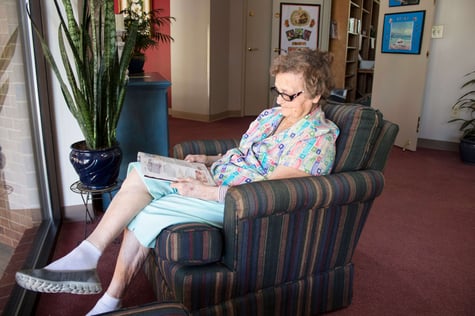 In fact, results of their latest version of the National Poll on Healthy Aging reveal that a third of seniors describe themselves as lonely. Even more concerning, the numbers are higher than they were in 2018, before the pandemic.
In fact, results of their latest version of the National Poll on Healthy Aging reveal that a third of seniors describe themselves as lonely. Even more concerning, the numbers are higher than they were in 2018, before the pandemic.
The US Surgeon General calls it an “epidemic of loneliness”
Often or some of the time:
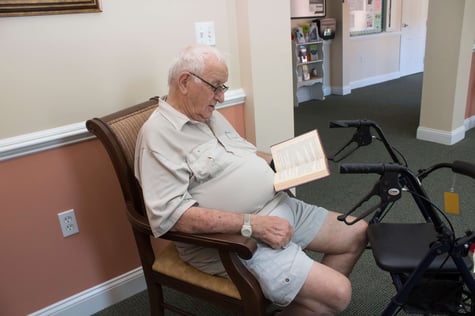 Chronic senior loneliness and perceived lack of companionship are most common among:
Chronic senior loneliness and perceived lack of companionship are most common among:
Infrequent social contact is also most common among those in fair or poor mental or physical health overall or with a limiting condition or disability. But it’s more common among men than women.
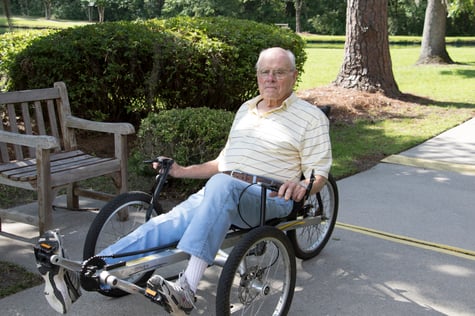 Negative impacts of chronic senior loneliness include:
Negative impacts of chronic senior loneliness include:
%20.jpg?width=475&height=317&name=Richmond%20Hill%20-%20Libs%20101st%20B-Day%20(1896)%20.jpg) Take action to combat chronic senior loneliness!
Take action to combat chronic senior loneliness!
If you suspect Mom or Dad is suffering from chronic senior loneliness, you can help boost their health and sense of happiness.
When Mom or Dad is depressed due to chronic senior loneliness, they may not “bother” to reach out and arrange visits or activities with others. Give them a nudge by proactively setting dates to get together. Be sure to get their input, so these activities will be particularly enjoyable and rewarding for them.
If you live out of town and can’t visit regularly, remember that the video chat tools you used during the pandemic still work to create face-to-fact time and sharing.
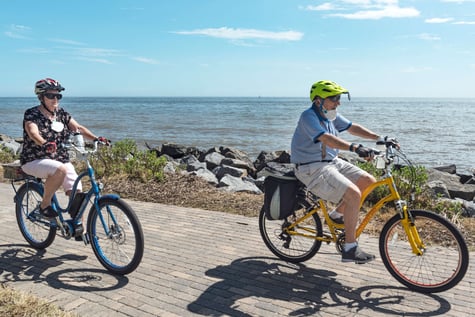 Get busy!
Get busy!To the extent they are able, seniors should get at least 150 minutes of exercise weekly. It can be a half hour, five days a week or some other combination, but at least two days should focus on muscle-strengthening. Improving balance (with yoga, for example) is also recommended. If your loved one is hesitant, join them or help them find a group they can exercise and socialize with.
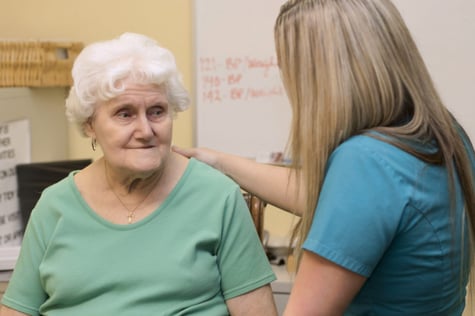 Talk to your loved one’s doctor
Talk to your loved one’s doctorUnderlying health conditions can affect Mom or Dad’s emotional state and exacerbate the effects of chronic senior loneliness. Talk to your loved one’s doctor about specific signs or symptoms you’ve noticed so he or she can determine if any medical steps are needed.
%20.jpg?width=475&height=317&name=St.%20Simons%20Block%20Party%20(1766)%20.jpg) For most families, it can be difficult to impossible to provide the one-on-one time and interaction needed to permanently stave off chronic senior loneliness, especially as Mom or Dad age and their health needs change.
For most families, it can be difficult to impossible to provide the one-on-one time and interaction needed to permanently stave off chronic senior loneliness, especially as Mom or Dad age and their health needs change.
Moving to a quality senior living community can be the ultimate blessing for everyone. Mom or Dad can be surrounded with plenty of easily accessible physical, mental and spiritual engagement opportunities that minimize risk of loneliness. And you can get peace of mind knowing your loved one is well cared-for at all times.
Magnolia Manor Keeps Seniors Social
From group activities and outings to wellness centers, fitness classes and more, residents in our eight communities across South Georgia are living their lives to the fullest in their golden years. To learn more about senior living options for your loved one contact us online today, or at 1-855-540-LIFE(5543). We are here to help.
Learn what different types of senior living care are available and which one best fits your needs now and in the future.
